We might be living in the Information Age but there’s a lot of misinformation and common myths about hunting that shape public perceptions about hunters. These include hunters hate animals, humans don’t need to hunt anymore, hunting is cruel, humans are the only species that hunts for fun, hunters have an unfair advantage over animals, and that hunters kill endangered animals.
How did we drift so far from the truth?
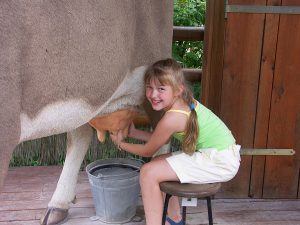 Just a few generations ago, most people grew up with some sort of connection to the land. Perhaps they hunted or farmed their own food, or knew someone who did. Perhaps they bought their food directly from the farmer or local green grocer. Now, with society shifting to cities and urban centres, it is entirely probable to go your whole life without ever meeting a hunter or a farmer. It has also become increasingly common for people to grow up having never seen animals in the wild, where their only knowledge of wildlife comes from what they have seen on a documentary, read about online, or viewed from a controlled environment like a zoo, sanctuary or serviced hiking trail. Very few city people get off the beaten track.
Just a few generations ago, most people grew up with some sort of connection to the land. Perhaps they hunted or farmed their own food, or knew someone who did. Perhaps they bought their food directly from the farmer or local green grocer. Now, with society shifting to cities and urban centres, it is entirely probable to go your whole life without ever meeting a hunter or a farmer. It has also become increasingly common for people to grow up having never seen animals in the wild, where their only knowledge of wildlife comes from what they have seen on a documentary, read about online, or viewed from a controlled environment like a zoo, sanctuary or serviced hiking trail. Very few city people get off the beaten track.
It is this very disconnect from nature that makes people more susceptible to believing these six common myths about hunting.
Myths about hunting – Hunters hate animals
One of the most common myths about hunting is that hunters hate animals. After all, you wouldn’t kill something you love, right?
The truth is that most hunters have a deep love and respect for wildlife and want to see it protected.
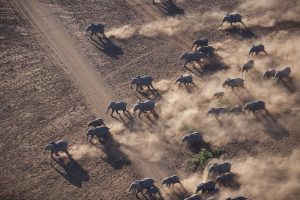 Non-hunters, particularly animal rights activists, push for preservation over conservation. They believe in locking up wilderness and protecting it from any human intervention. They have a micro view about conservation rather than a macro. This means that they are more concerned with saving the individual animal over the species as a whole. It’s a little bit like Newton’s theory – every action has an equal and opposite reaction, and sometimes good intentions do more harm than good. We have seen that with elephant populations, as well as moves to ban hunting of predatory animals like foxes, feral cats and pigs.
Non-hunters, particularly animal rights activists, push for preservation over conservation. They believe in locking up wilderness and protecting it from any human intervention. They have a micro view about conservation rather than a macro. This means that they are more concerned with saving the individual animal over the species as a whole. It’s a little bit like Newton’s theory – every action has an equal and opposite reaction, and sometimes good intentions do more harm than good. We have seen that with elephant populations, as well as moves to ban hunting of predatory animals like foxes, feral cats and pigs.
Hunters, on the other hand, understand there’s a symbiotic partnership between humans and nature. If we want to ensure we have animals available to hunt, we need to do everything in our power to ensure the survival of all species, even if it means devising laws and conservation rules to conserve them.
Non-hunters often criticise trophy hunters for paying big dollars to hunt animals, but it is often that very money that ensures wildlife survives.
Take the markhor for instance, which only exists today because the locals agreed to a system that sells a limited number of trophy tags to overseas hunters.
North America and South Africa are credited with having the most successful wildlife conservation programs in the world. Both models were built around recreational hunting and both place a monetary value on wildlife. This gives people an incentive to protect them.
In North America, hunters contribute more than 60 percent of the funds used in wildlife conservation. Two hunting organisations (Ducks Unlimited and the Rocky Mountain Elk Foundation) have restored and conserved almost 21 million acres of land for wildlife. And there are dozens more just like them.
In South Africa, the introduction of private ownership of wildlife saw wildlife populations grow by 4073 percent and dozens of threatened species returned to the wild.
Hunters love animals just as much as anyone else. They just have a differing view on how to protect them.
Myths about hunting – Humans don’t need to hunt anymore
Another of the most common myths about hunting is that humans don’t need to hunt anymore. This myth is often perpetuated by animal rights groups like PETA who state that “hunting might have been necessary for human survival in prehistoric times, but today most hunters stalk and kill animals merely for the thrill of it, not out of necessity.“
There are two variations of the ‘humans don’t need to hunt anymore argument’. Meat eating non-hunters tend to focus on the fact that there’s no need to hunt when you can buy food at the supermarket. Vegan and vegetarians focus on the idea that we don’t need to eat meat at all.

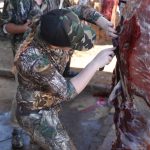
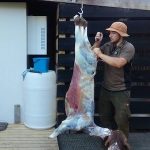
The vast majority of humans eat meat. Whether you purchase a farmed chicken or pig from the supermarket or hunt a zebra or deer yourself, the result is still the same – an animal has died. The only differences between store bought meat and wild game meat you hunt yourself is how the animal lived, and whether you are happy to let someone else do the hard work of harvesting it for you. Hunters like the challenge that comes from doing it themselves.
As for the second version of that argument, it is a fallacy to believe there is such a thing as a harm free lifestyle. It doesn’t matter whether you eat meat or veggies, animals have died somewhere in that process.
 Plant-based farming relies heavily on crop protection. Crops are monocultures. Anything that does not belong in that field or that threatens the growth of that food must be removed. Crop protection goes far beyond killing a few bugs, insects or rodents. It involves clearing the land of all its former inhabitants to enable the sowing of plant-based crops and removing competitive grazers (rabbits, deer, birds, ducks, pigs, kangaroos, possums and any other creature that threatens the success of those crops). Hunting is one method used to protect those crops. The other is poison, which is potentially one of the worst deaths an animal will ever face.
Plant-based farming relies heavily on crop protection. Crops are monocultures. Anything that does not belong in that field or that threatens the growth of that food must be removed. Crop protection goes far beyond killing a few bugs, insects or rodents. It involves clearing the land of all its former inhabitants to enable the sowing of plant-based crops and removing competitive grazers (rabbits, deer, birds, ducks, pigs, kangaroos, possums and any other creature that threatens the success of those crops). Hunting is one method used to protect those crops. The other is poison, which is potentially one of the worst deaths an animal will ever face.
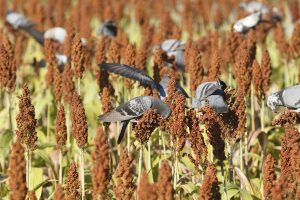
If you can accept that animals die in all food production (not to mention our day-to-day lives), the real question should be did that animal die in vain?
Which is worse? Eating the meat and utilising every part of an animal, or leaving its carcass to rot on the ground so you can pretend your lifestyle does no harm?
Myths about hunting – Hunting is cruel
When it comes to common myths about hunting, most people will tell you that hunting is cruel, barbaric and violent. Animal activists, in particular, love to sling emotionally charged accusations at hunters, coupling it with a wide range of violent words they believe makes hunting (and therefore hunters) look evil; words like kill, slaughter, corpse, murder, mutilate – which are all words associated with crimes, by the way.
As we have already pointed out, animals die every day. Some of those deaths occur because of humans. Some because of nature. The cruellest deaths are rarely the result of hunting.
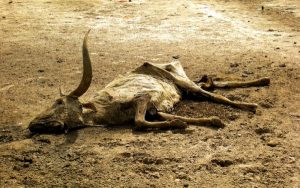 Ironically, animals suffer far more cruelty and violence in nature than they do from hunting.
Ironically, animals suffer far more cruelty and violence in nature than they do from hunting.
In nature, animals slowly starve to death. They get caught in bushfires. But more often than not, they die as a result of other animals. Male stags will literally fight to the death for a doe’s attention. A fox will eat the face or udders off a lamb while it is still alive. A hyena pack will tear an antelope apart limb from limb while it screams. A male zebra will drown a baby zebra in a watering hole.
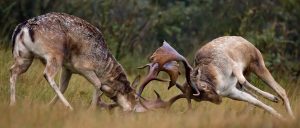
The reality is that humans are the only species that try to make death humane – that is, to cause the least amount of pain and suffering possible. Hunters do this by attempting to kill their prey quickly and efficiently, and with the least amount of stress to the animal.
Myths about hunting – Humans are the only species that hunts for fun
There are so many people that buy into the common myth that humans are the only ones that hunt and kill for fun. Just as staggering is how many people have convinced themselves that animals only kill to eat or survive, and that deaths in nature are never for fun or sport. They have obviously never watched a house cat play with a mouse and then walk away once the creature succumbs and dies. Or witnessed a single fox kill an entire hen house of chickens in a single night. Many predator species are surplus killers, meaning they will kill far more than they can ever consume. But it is not just predators that kill for fun. Dolphins, gorillas, elephants, prairie dogs, lemurs and many other species have been observed killing for pleasure or even out of jealousy (male animals will commonly kill young to force a female into season). Chimps even practice cannibalism, and will kill and then eat members of their own pack over a dispute (despite the fact that they are not usually meat eaters).
Just like animals, humans hunt for a variety of different reasons. Food is a major reason but it is not the only one. We hunt for protection – whether protecting crops from herbivores, pets and livestock from predators or keeping animals away from vital infrastructure (airports, cities, highways, power and water supplies). We hunt to keep wildlife at sustainable levels so that they do not starve to death or destroy the landscape. And yes, we also enjoy hunting and enjoy sharing the experience with other likeminded people. We enjoy getting out in nature, feeling reconnected and being involved in the process of getting our own food. Many of us also enjoy teaching techniques and passing on the knowledge of hunting and bush survival.
Myths about hunting – Hunters have an unfair advantage
Another of the common myths about hunting is that humans have an unfair advantage. The only people who believe this myth are those who have never tried to get close to a wild animal (the zoo doesn’t count. It is not filled with wild animals but captive animals under control).
Humans are at a distinct disadvantage in nature. Animals have much better senses and reflexes than humans. They can hear more, see further, smell better, run faster, have protective or attacking parts (sharp teeth, sharp claws, hard antlers) and are often significantly stronger or heavier than their human counterparts.
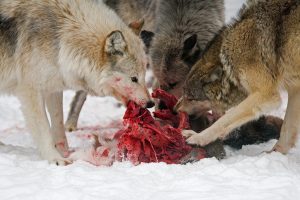
Prey animals use these superior senses and reflexes to flee predators. Predators use their physical advantages to stalk and attack their prey.
The only advantage humans have is our brain, and we use that to develop technology to help alleviate some of the physical imbalance. Unfortunately, technology only gets us so far. It does not guarantee success.
In fact, the average success rate amongst rifle hunters is 22 percent, while for bow hunters, it is only between 8 and 10 percent.
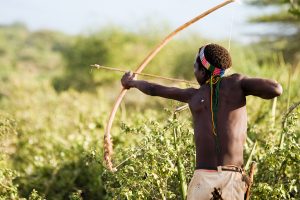 The key reason for this is that most hunting takes place at distances of less than 200 metres. If you’re bow hunting, it is even closer, meaning you need to get within 40 – 60 metres of the animal without being seen, heard or smelled. Alternatively, if hunting from a blind or stand, the hunter needs to sit quietly – often for long periods at a time and in cold conditions – and wait for the animal to feed in closer or walk by without being heard or smelled.
The key reason for this is that most hunting takes place at distances of less than 200 metres. If you’re bow hunting, it is even closer, meaning you need to get within 40 – 60 metres of the animal without being seen, heard or smelled. Alternatively, if hunting from a blind or stand, the hunter needs to sit quietly – often for long periods at a time and in cold conditions – and wait for the animal to feed in closer or walk by without being heard or smelled.
Certain rifles can shoot long distances (500 metres plus) but hunters then have to contend with other elements: wind, curvature of the earth, bullet velocity, animal movement, shot placement, accuracy and personal skill. The further away from the animal the hunter is, the more chance for error, and the less chance for success.
Myths about hunting – Hunters kill endangered animals
How many times have you heard that hunters kill endangered animals? This common myth about hunting is really borne out of ignorance. Most people do not understand the difference between hunting and poaching, nor do they realise that what may be endangered and therefore illegal in one country might be plentiful in another.
When it comes to poaching vs hunting, there is one very simple but important difference: poaching always operates outside of the law while hunting always operates within the law – ie one is illegal, the other is not.
People often associate poaching with Africa, and with animals like elephants, rhinoceros and lions. But poaching is a global problem that occurs anytime someone kills an animal without the appropriate license, tag, or permission and does not adhere to the regulations for legal hunting in that area. Poaching can occur when someone shoots an animal outside of the regulated season, kills it on private property without the owner’s permission, or kills it with an unlicensed firearm.
Legal hunting always adheres to regulations on seasons and times that hunting is permitted, bag limits on the number of animals legally allowed to be taken, the minimum caliber or poundage required to humanely kill the animal, the tags and licenses required to shoot that particular animal or own the firearm and even the areas that hunting can occur. Hunters spend a great deal of time and effort learning their craft, and ensuring they act ethically, legally and responsibly.
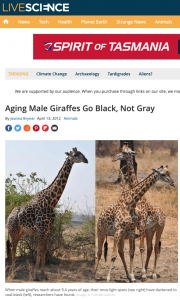 The other side of this myth is the assumption that all animals and all areas are equal. Take giraffe for instance. A lot of people assume that all giraffes are the same and that they are all endangered. However, there are actually 9 sub-species of giraffe. Two of these are listed as critically threatened (endangered), two are thriving and the rest are stable. But even within this list, geographical area is an important factor. What is rare in Burkina Faso or Kenya might be thriving in Mozambique or South Africa.
The other side of this myth is the assumption that all animals and all areas are equal. Take giraffe for instance. A lot of people assume that all giraffes are the same and that they are all endangered. However, there are actually 9 sub-species of giraffe. Two of these are listed as critically threatened (endangered), two are thriving and the rest are stable. But even within this list, geographical area is an important factor. What is rare in Burkina Faso or Kenya might be thriving in Mozambique or South Africa.
There are cases where people do in fact legally kill an endangered animal. For instance, in Pakistan, the markhor mountain goat is considered endangered but the International Union for the Conservation of Nature (IUCN) has developed a trophy hunting program where a limited number of tags are auctioned each year, and the proceeds from those hunts goes directly into conservation efforts for the species.
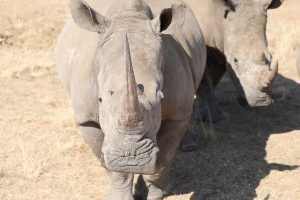 The truth is that legal, regulated hunting actually saves endangered animals.
The truth is that legal, regulated hunting actually saves endangered animals.
Since 1960, wildlife populations in South Africa have grown from 575,000 to more than 24 million, saving many species from extinction.
In North America, recreational hunting has saved the elk, wild turkey, whitetail deer, black bear, pronghorn antelope, bighorn sheep, and bison from extinction.
At the end of the day, most of the common myths about hunting can be debunked using simple common sense and scientific facts. However, it’s important to remember that anti-hunting rhetoric is rarely based on facts. It is based on emotions and the anthropomorphising of animals (assigning them human traits and emotions). It’s easy enough to change people’s minds. It’s harder to change their hearts.
What is I Am Hunter?
I Am Hunter wants to change the way hunting is perceived and to change the conversation from a negative one driven by anti-hunters to a positive one led by hunters.
Our goal is to help hunters become positive role models and ambassadors for hunting, while simultaneously helping non-hunters understand why hunting is important.
You can become a supporter and help us achieve our goal and spread a positive message about hunting with the wider community.
Related content
If you would like to know more about hunting wallabies, kangaroos or deer in Tasmania, check out these related articles and podcasts.
Our other channels
Get our newsletter
Get our free monthly newsletter direct to your inbox
Listen on iTunes
Listen to our podcast on iTunes.
TV series
Watch I Am Hunter episodes on My Outdoor TV (MOTV)
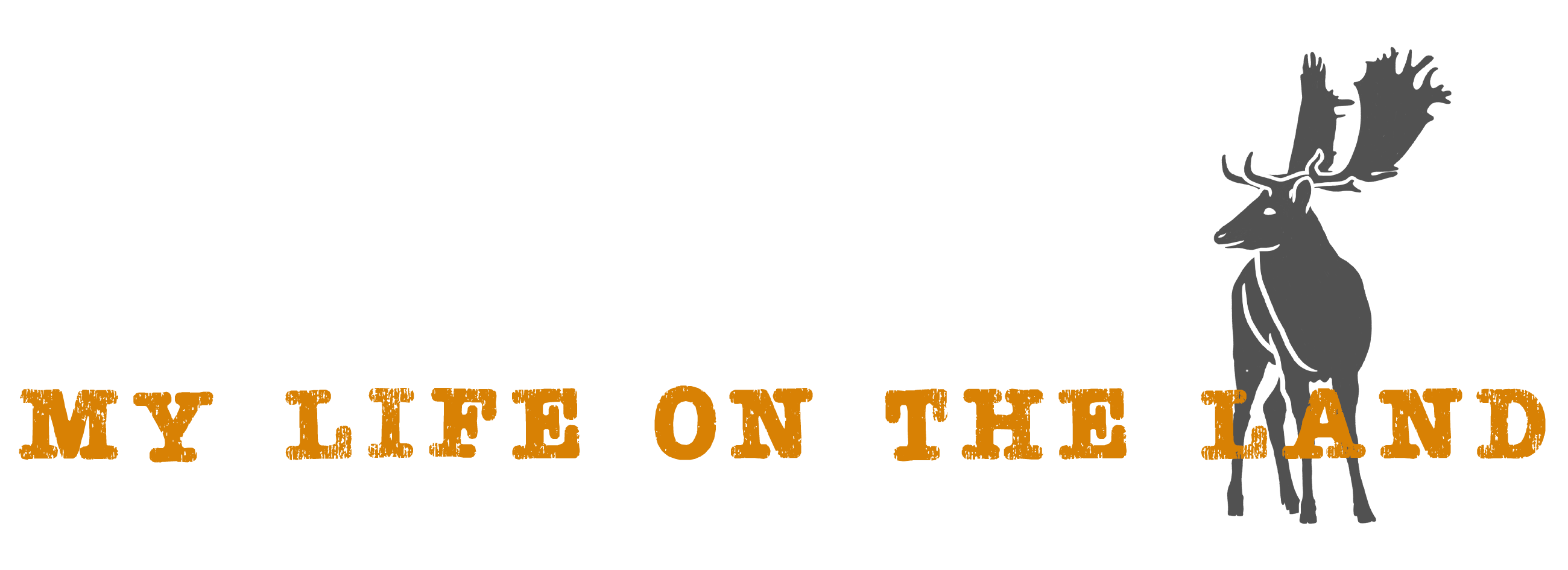
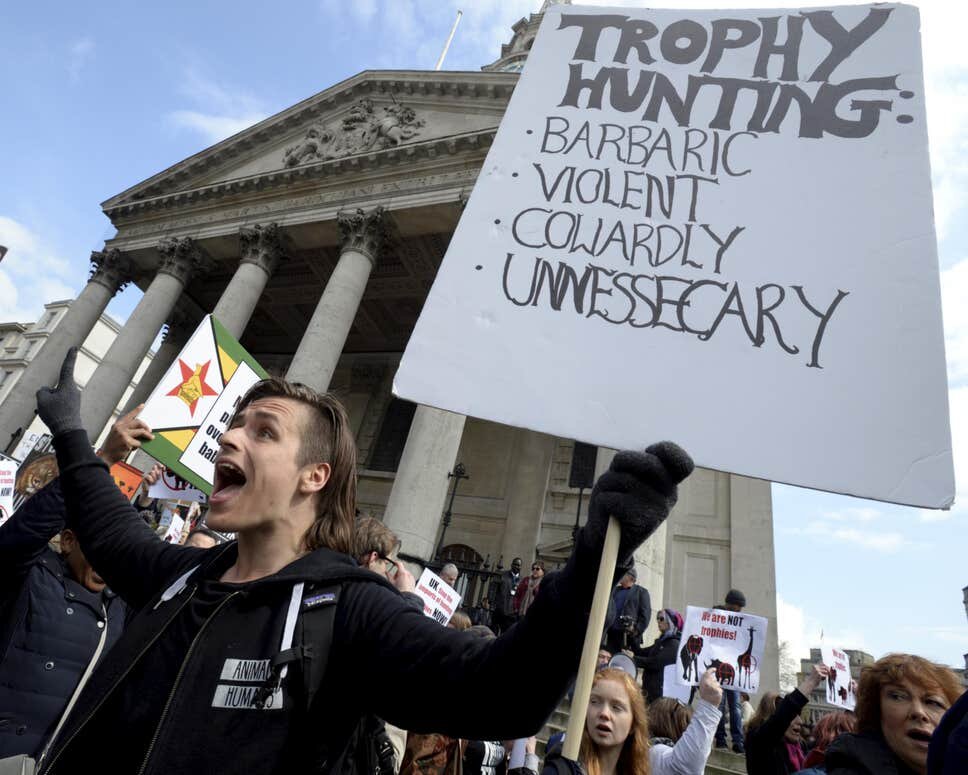
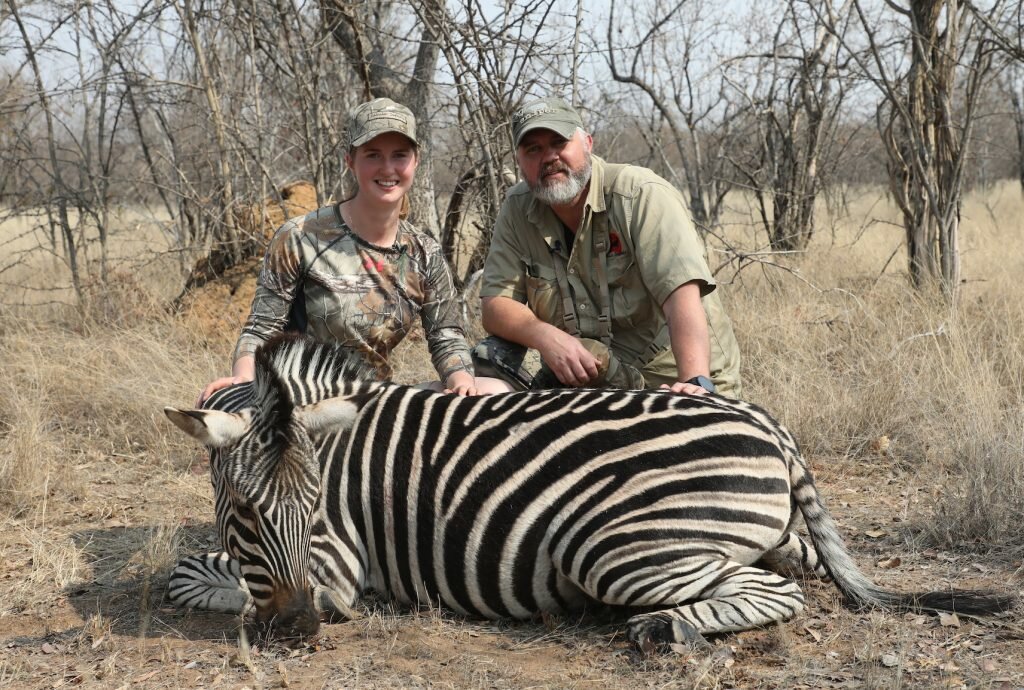
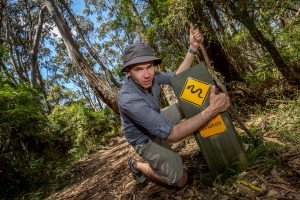
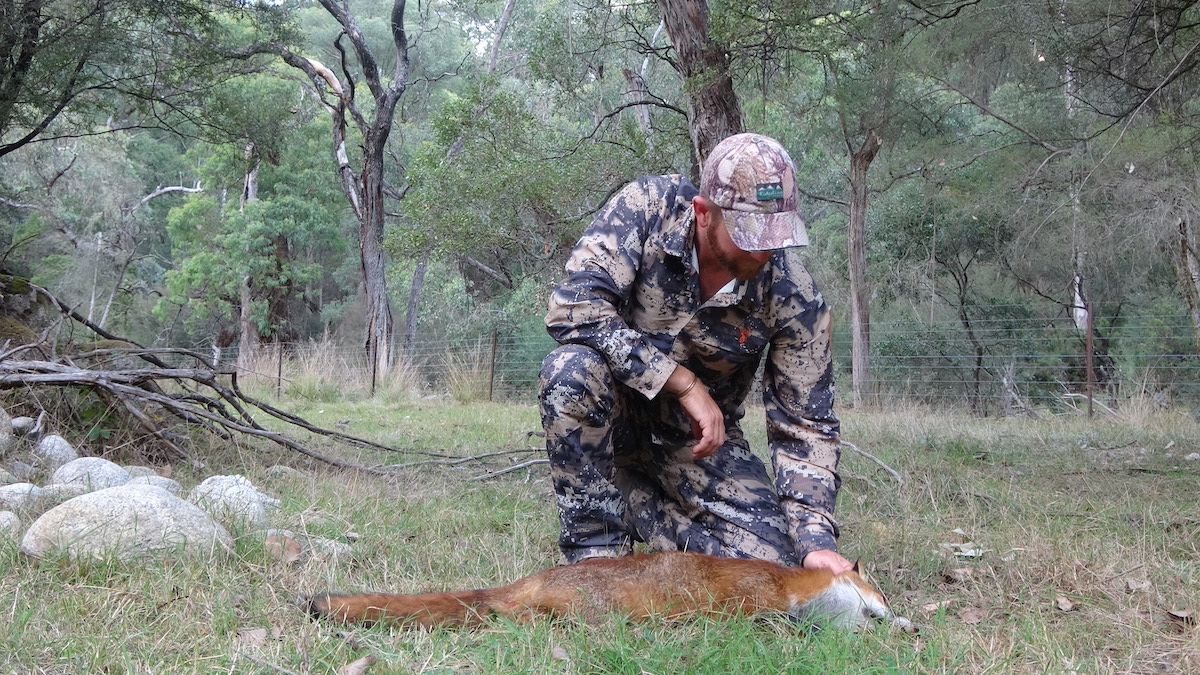
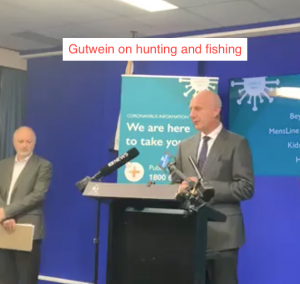
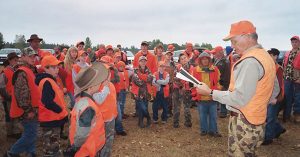
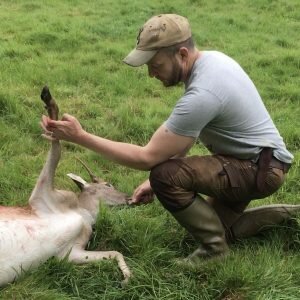
2 thoughts on “6 common myths about hunting”